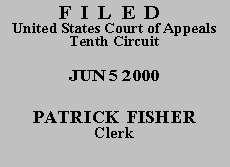

| MOHAMMAD RANKOUHI
MOMENNIA,
Petitioner-Appellant, v. IMMIGRATION & NATURALIZATION SERVICE, Respondent-Appellee. |
|
Petitioner-appellant Mohammad Rankouhi Momennia appeals from the district court's orders denying his 28 U.S.C. § 2241 petition for writ of habeas corpus, and his motion to stay deportation. We lack jurisdiction to consider his challenges, and therefore dismiss his appeal.
Appellant is a native and citizen of Iran. He entered the United States on July 16, 1983, as an immigrant. On March 11, 1993, appellant was convicted in Oklahoma state court of second degree robbery, assault and battery, and pointing a firearm. Appellant completed his Oklahoma sentence in September 1995.
The Immigration and Naturalization Service (INS) instituted removal proceedings against appellant on June 7, 1995. The basis for removal was appellant's conviction of the Oklahoma firearms offense. See Okla Stat. tit. 21, § 1289.16; I.N.A. § 237(a)(2)(C), codified at 8 U.S.C. § 1227(a)(2)(C).(1)
The INS entered a final order of removal against appellant on September 3, 1997. The order notified him that an appeal would be due before October 3, 1997. Appellant did not file an appeal to the Board of Immigration Appeals (BIA). Instead, on October 27, 1997, he filed a motion with the immigration judge to reopen the removal proceedings and to stay his removal. The immigration judge denied his motion because it did not contain the affidavit or other evidentiary material required by 8 C.F.R. § 3.23(b)(3). There is no indication that appellant appealed the denial of his motion to reopen the removal proceedings to the BIA.
Appellant filed this habeas proceeding in December 1998. In connection with the proceeding, he requested a stay of deportation. The district court denied the writ, along with appellant's request for stay. On appeal, he argues that (1) he was entitled to a stay of deportation; (2) his attorney was ineffective for failing to argue that he would be killed if deported to Iran, because of assistance he provided to the United States government; (3) his attorney was ineffective in failing to file an administrative appeal from the order of removal, and in filing a motion to reopen the proceedings without attaching the required affidavit; and (4) his Oklahoma conviction for pointing a firearm does not fall within the category of firearms offenses set out at 8 U.S.C. § 1227(a)(2)(C).
Appellant failed to file a timely appeal with the BIA from the immigration judge's decision against him. His failure to raise his issues on appeal to the BIA constitutes a failure to exhaust administrative remedies, which deprives both this court and the district court of jurisdiction to consider them. See Akinwunmi v. INS, 194 F.3d 1340, 1341 (10th Cir. 1991); Rivera-Zurita v. INS, 946 F.2d 118, 120 n.2 (10th Cir. 1991).
Appellant asserts, however, that his failure to timely file his appeal with the BIA was itself the result of his counsel's ineffective assistance. The proper administrative remedy for such alleged failings is to file a motion to reopen the administrative proceedings. See Akinwunmi, 194 F.3d at 1341.
Appellant did file a motion to reopen with the immigration judge. Unfortunately, appellant did not give the BIA an opportunity to address his numerous claims of incompetent representation by his attorney by appealing the immigration judge's denial of his motion to reopen proceedings to the BIA. Appellant's failure to take an appeal from the order denying his motion to reopen is a failure to exhaust administrative remedies, which deprives us of jurisdiction to review his claims.
We also lack jurisdiction to review the order denying him a stay of deportation, because such a request attacks the Attorney General's discretionary decision to execute the final order of removal. See Fedorca v. Perryman, 197 F.3d 236, 240 (7th Cir. 1999). Review of the discretionary decision is barred by 8 U.S.C. § 1252(g), as amended by the Illegal Immigration Reform and Immigrant Responsibility Act of 1996. See Ho v. Greene, 204 F.3d 1045, 1051 (10th Cir. 2000).
The district court's orders denying appellant's § 2241 petition and denying the requested stay of removal are VACATED, and this case is REMANDED with instructions to dismiss appellant's § 2241 petition for lack of jurisdiction.
Entered for the Court
Circuit Judge
*. This order and judgment is not binding precedent, except under the doctrines of law of the case, res judicata, and collateral estoppel. The court generally disfavors the citation of orders and judgments; nevertheless, an order and judgment may be cited under the terms and conditions of 10th Cir. R. 36.3.
1. The Order to Show Cause and Notice of Hearing also charged appellant with being deportable because of his having been convicted of an aggravated felony and of two crimes involving moral turpitude. A notation in the file indicates that these charges were later withdrawn as a basis for removal.